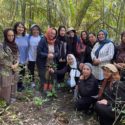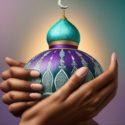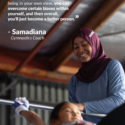Muslim women throughout Aotearoa New Zealand are taking control of their own personal and community development with the targeted support of others, such as E Tū Whānau.
Two outstanding examples of this are the successful implementation of the Islamic Women’s Council of New Zealand (IWCNZ) community development strategy, and its Women in Leadership programme.
ICWNZ is a nationwide, community development organisation, open to all Muslimah (Muslim women) in Aotearoa New Zealand.
“IWCNZ supports Muslim women to thrive and be who they want to be.”
Aliya Danzeisen, IWCNZ National Coordinator
Muslim women in leadership
The Women in Leadership programme sits within the IWCNZ long-term strategy. Women aged between 30 and 50 years are selected for the programme which includes governance, media, and presentation training. Importantly, they’re also matched, one on one, with mentors. So far, 28 women have gone through the programme and a further 42 will take part over the next 18 months.
The aim is to increase the visibility of Muslimah from diverse professional and cultural backgrounds and to highlight their contribution to New Zealand society.
“Standing strong in your own community allows you to stand strong in the world,” says Aliya.
IWCNZ National Conference 2024
The success of these two initiatives were among a range of topics discussed at this year’s 33rd IWCNZ National Conference held recently in Lower Hutt.
This year’s conference, the largest so far, was a joyous, colourful gathering of 270 women and rangatahi from Māori, Pacific, Pākeha, European, American, Middle Eastern, African, and Asian backgrounds.
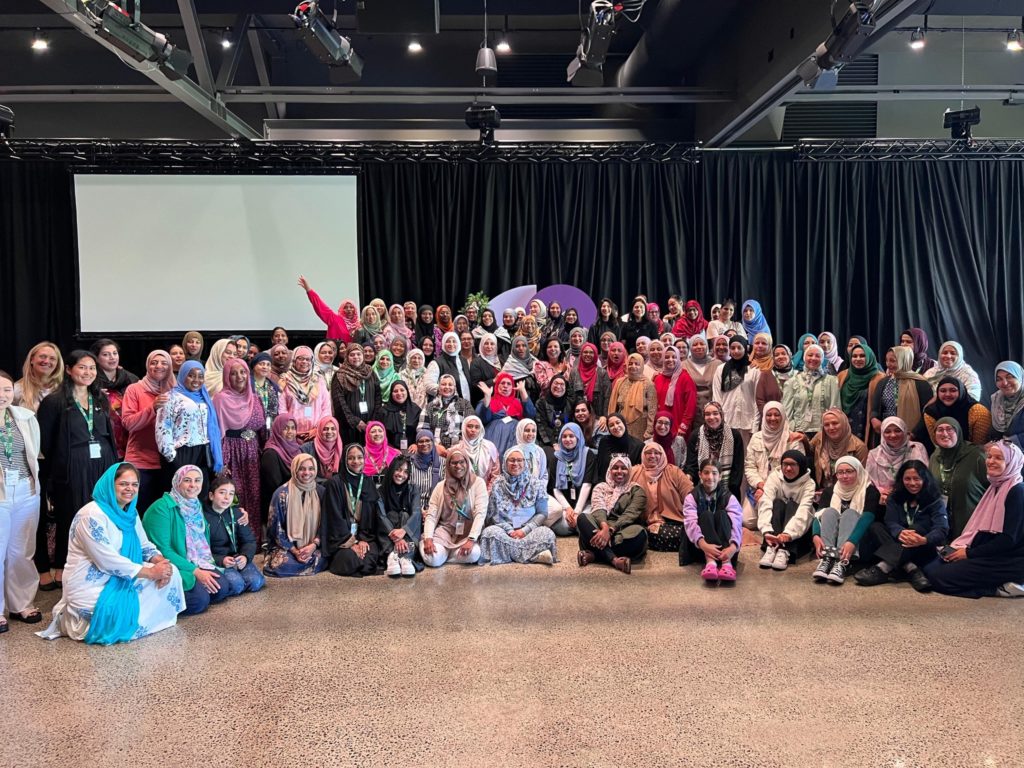
The conference was an opportunity for New Zealand Muslim women to examine the implementation of their faith in contemporary society. They discussed issues of Muslim inclusion and experiences of discrimination. They also examined Te Tiriti o Waitangi principles and how they co-exist harmoniously with Islamic teachings, and they considered insights from research into the way Muslimah in Aotearoa New Zealand balance their Muslim identities with other parts of the lives. Parenting, self-care, and spiritual development were also on the agenda.
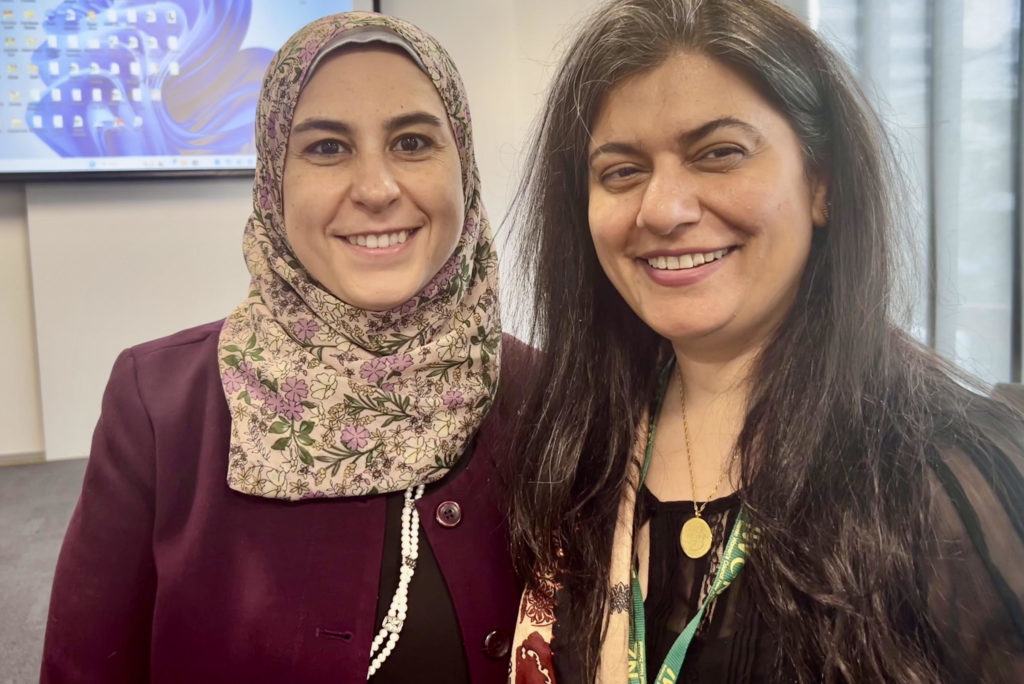
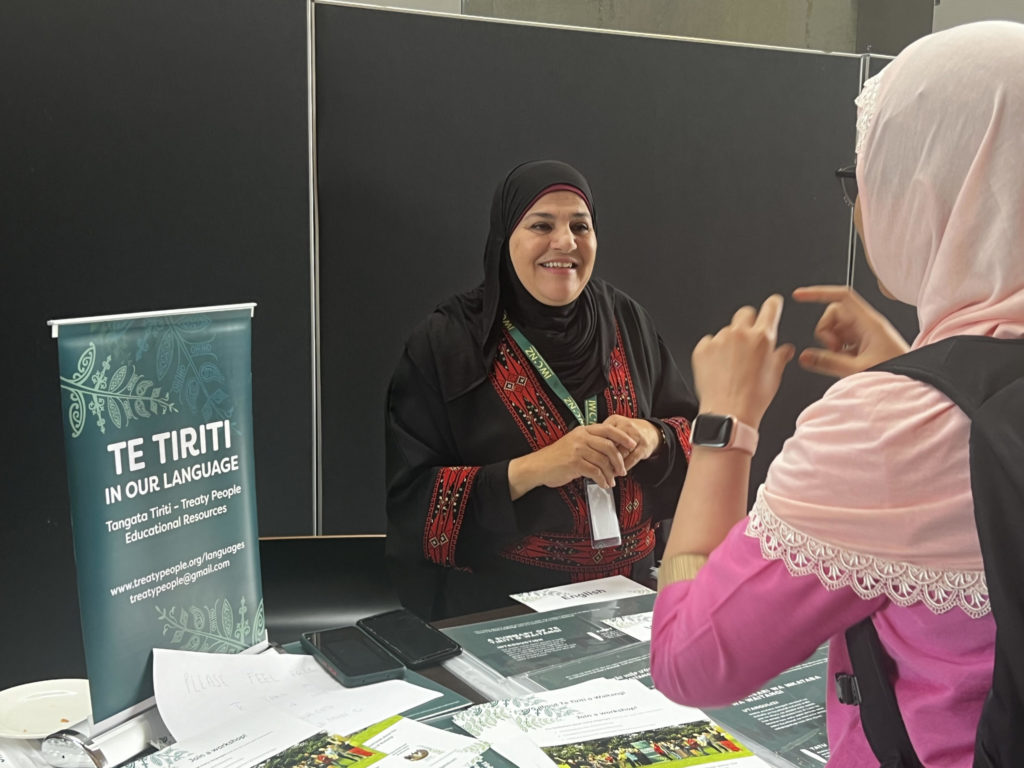
It was a hugely successful event, where Muslimah were able to network, discuss issues of importance to their communities, and simply relax in the company of women like themselves.
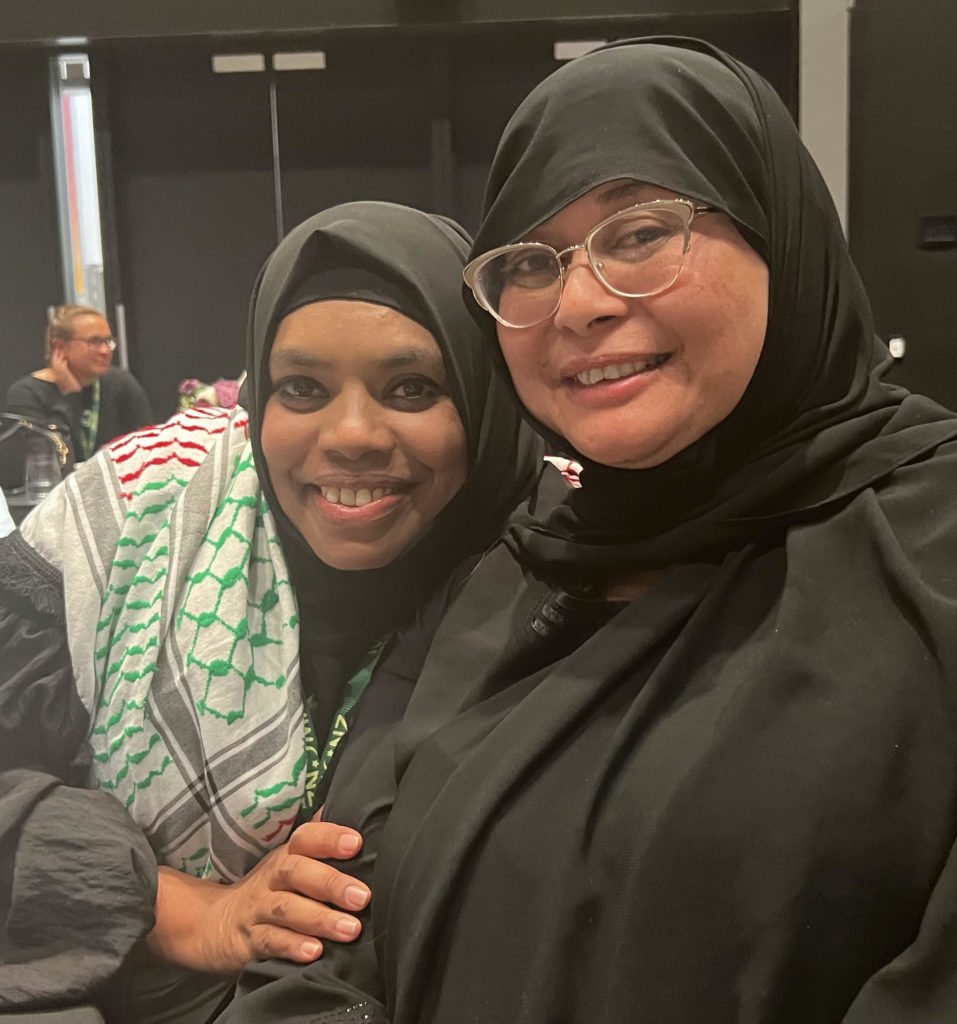
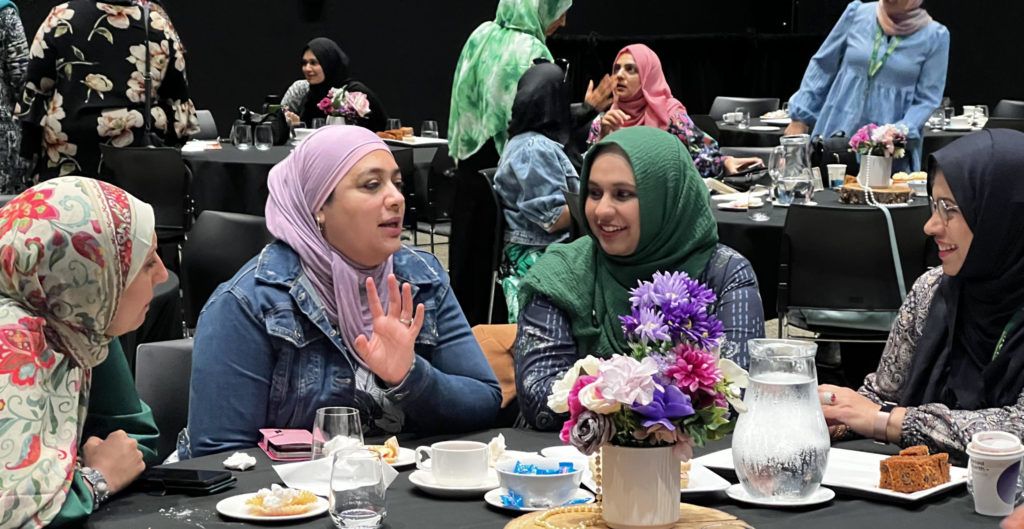
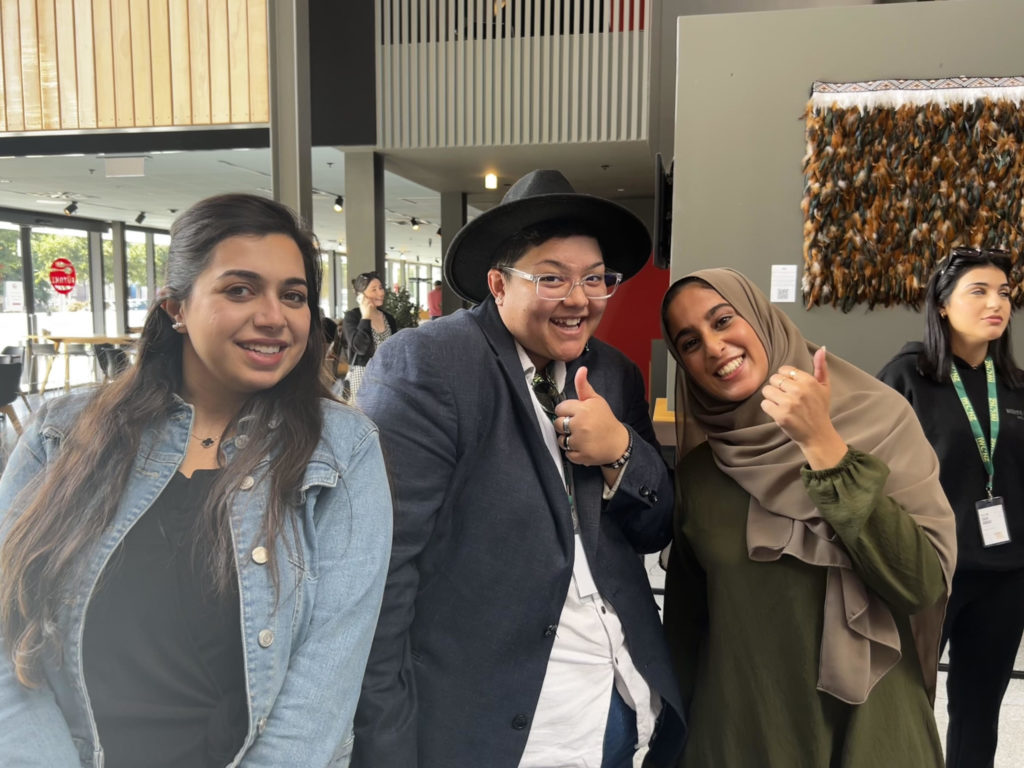
“It’s important for Muslimah to have safe spaces where they can see themselves reflected and where they are not afraid,” says Aliya.
Want more?
Learn how E Tū Whānau supports and strengthens communities of former refugees and migrants.
Read about the blending of tikanga and faith for Māori Muslim Women at IWCNZ National Conference 2016.
Learn more about Islamic Women’s Council of New Zealand.

